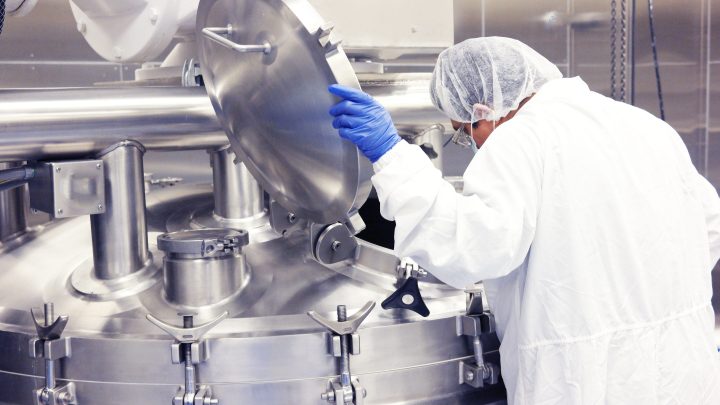
Chemicals are a big business in the U.S., but here’s why the sector is getting squeezed
Share Now on:
Chemicals are a big business in the U.S., but here’s why the sector is getting squeezed

Chemicals are a big industry here in the U.S. — $639 billion-big, according to the American Chemistry Council. And yet, it is an industry that is not in good shape right now. The long arms of the pandemic are still holding on tight here.
Ten percent of all U.S. exports of goods are chemicals. It’s an industry that covers a whole lot of ground from plastics to pills.
“Literally tens of thousands of different products,” said Martha Moore, chief economist at the American Chemistry Council. “Things like plastic resins, chemicals that go into a variety of products, fertilizer, and consumer products like dish soap and shampoo.”
During the pandemic, demand surged for chemicals used to make the fibers in masks and PPE, chemicals to just make stuff in general that we were ordering. And people had time to do a lot of things — like home improvement — that used a lot of chemicals, plastics, varnishes.
But, in a way, all that demand back then was borrowing from demand today. And in the second half of last year, it all came crashing down.
“The prices of some of the key commodity plastics — things to make pipes, buckets, housewares, and things like that — dropped 50 to 60%,” said Chuck Venezia, senior vice president of chemical markets at Argus.
Meanwhile, the price of oil, used to make the building blocks of many chemicals, did not come crashing down.
“So, margins in the chemicals industry came to a screeching halt, and we have been bouncing around the bottom since,” Venezia said.
But one of the big issues has been something much of the rest of the economy has tried to put behind it.
“We’re really seeing unprecedented levels of de-stocking,” said David Yankovitz, who leads the chemical practice at Deloitte.
“De-stocking” is getting through extra inventory. Not buying more stuff because you already have too much on the shelves and in the warehouse.
This is what retailers like Target were complaining about last year. It’s taken time for that to cascade back up the supply chain.
“There are a lot of steps that need to de-stock along the way, and ultimately, the chemical industry, if you will, is the last stop,” Yankovitz said.
On the bright side, economists say the worst may well be over. And there are big opportunities on the horizon: As the U.S. moves to greener energy, it will need chemicals to do it.
There’s a lot happening in the world. Through it all, Marketplace is here for you.
You rely on Marketplace to break down the world’s events and tell you how it affects you in a fact-based, approachable way. We rely on your financial support to keep making that possible.
Your donation today powers the independent journalism that you rely on. For just $5/month, you can help sustain Marketplace so we can keep reporting on the things that matter to you.

















